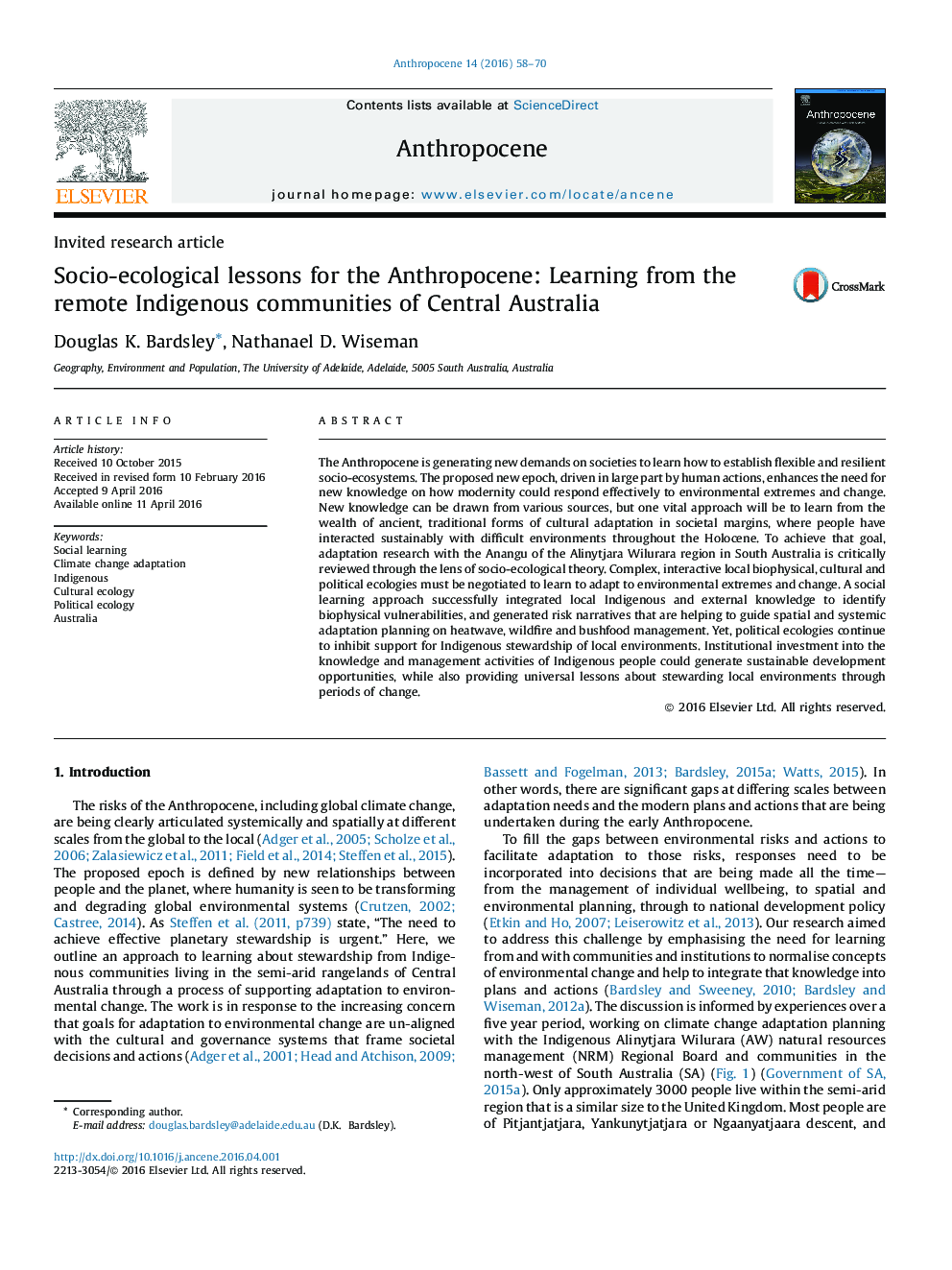| Article ID | Journal | Published Year | Pages | File Type |
|---|---|---|---|---|
| 4461852 | Anthropocene | 2016 | 13 Pages |
The Anthropocene is generating new demands on societies to learn how to establish flexible and resilient socio-ecosystems. The proposed new epoch, driven in large part by human actions, enhances the need for new knowledge on how modernity could respond effectively to environmental extremes and change. New knowledge can be drawn from various sources, but one vital approach will be to learn from the wealth of ancient, traditional forms of cultural adaptation in societal margins, where people have interacted sustainably with difficult environments throughout the Holocene. To achieve that goal, adaptation research with the Anangu of the Alinytjara Wilurara region in South Australia is critically reviewed through the lens of socio-ecological theory. Complex, interactive local biophysical, cultural and political ecologies must be negotiated to learn to adapt to environmental extremes and change. A social learning approach successfully integrated local Indigenous and external knowledge to identify biophysical vulnerabilities, and generated risk narratives that are helping to guide spatial and systemic adaptation planning on heatwave, wildfire and bushfood management. Yet, political ecologies continue to inhibit support for Indigenous stewardship of local environments. Institutional investment into the knowledge and management activities of Indigenous people could generate sustainable development opportunities, while also providing universal lessons about stewarding local environments through periods of change.
